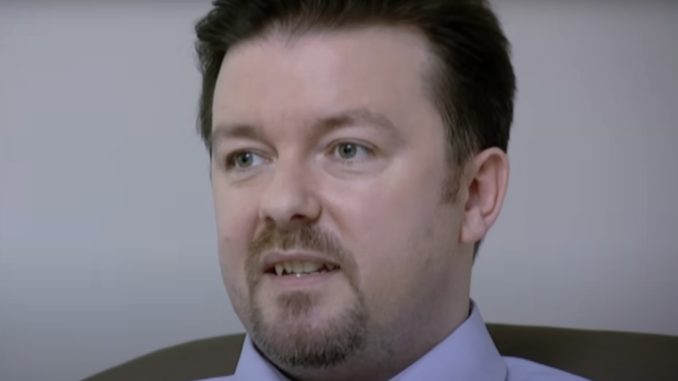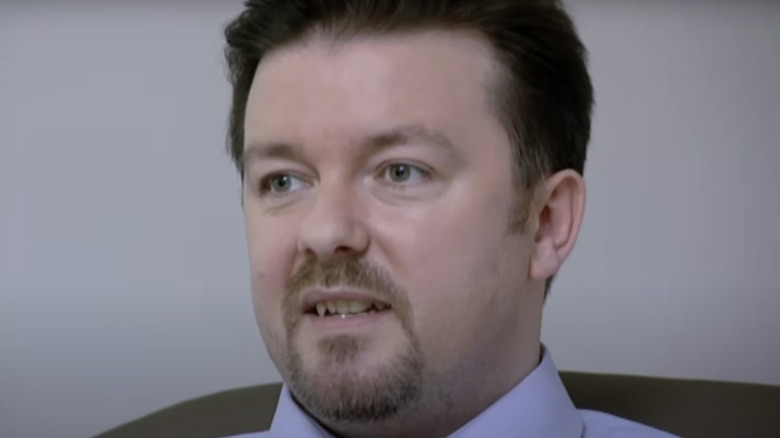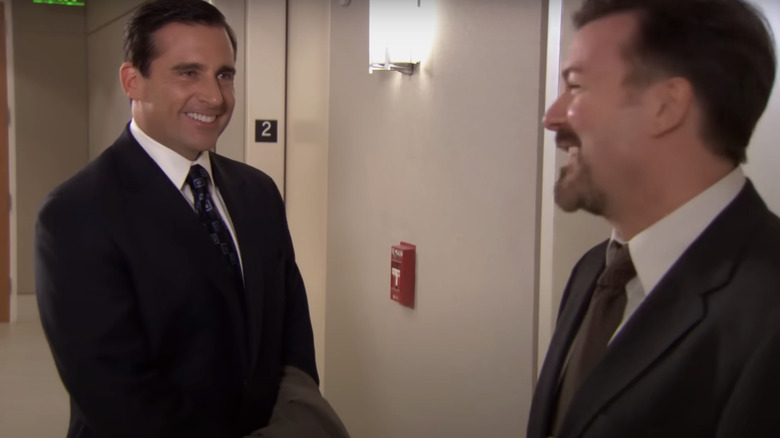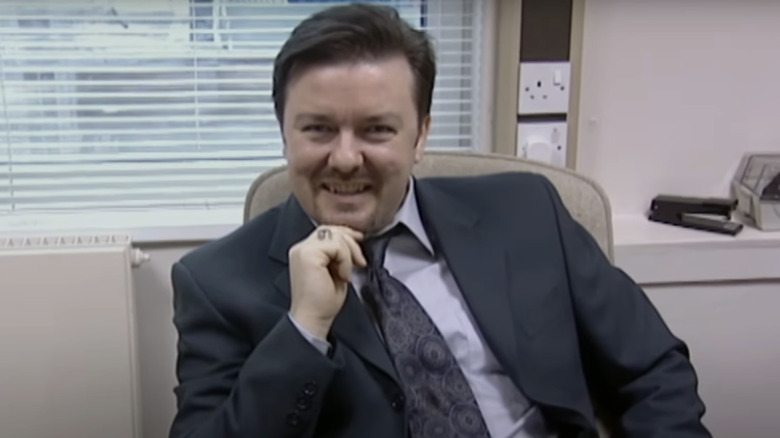
Growing up in England, I have a very distinct memory of when “The Office” first debuted on the BBC. My dad saw it first and loved it, not only because it was undeniably hilarious, but because he said he knew two or three guys from his own office that acted almost exactly like Ricky Gervais’ David Brent. As a recovering office administrator myself, I could also see that Gervais and co-creator Stephen Merchant had absolutely nailed the quietly oppressive fluorescent hellscape of the modern office, and populated it with characters that felt like perfect analogues for every colleague I’d ever had.
As such, the show felt like a hinge moment in TV history. It was a new form of comedy that recognized the inherent absurdity in modern life, and let its humor arise from simply allowing its characters to be themselves. It was so startlingly accurate in its depiction of modern office life (helped by the mockumentary format) and subtly cutting in its observations that it felt like a truly subversive new form of comedy.
When news of a U.S. remake emerged, I remember the general feeling among friends and family being dismissive. The humor of “The Office” — which according to Metacritic is the best sitcom of all time — seemed so inherently tied to the British workplace and its awkward social customs, and so clearly defined by a very British comedic sensibility, that it was surely the very last show the Americans should be remaking. Then, the showrunner for the U.S. “Office,” Greg Daniels, proved all of us wrong with a version of the series that charted its own course, retaining the basic premise of Gervais and Merchant’s series but telling its own stories with its own comedic sensibility. Which, as it happens, is exactly what Gervais had hoped for, and why he was not a major player in the remake’s creation.
The U.S. Office was an American show for an American audience
Ahead of the 2005 debut of “The Office” on NBC, Ricky Gervais and star Steve Carrell spoke to Entertainment Weekly, where Gervais was asked about his home country being dismissive of the new series. The co-creator admitted that “people are always gonna be wary of a remake” before affirming that this new version of the show was squarely “aimed at the 249 million Americans who didn’t see the original TV show.” For Gervais, this was the key to the U.S. version’s success. It wasn’t trying to recreate the original series. Instead, it was an American show for an American audience that just happened to be inspired by what he and Stephen Merchant had done back in the U.K. Gervais continued:
“It is as good [as the original series]. And I love the fact that, apart from the first one, the scripts are all original. You’ve gone back to the blueprint of what the characters are and you’ve started from there, as opposed to copying anything. To me, it was like watching something I had nothing to do with, and it would be my favorite sitcom. You’ve made a new program, and it has to be that way. Which is why I purposefully had no involvement. It should be made by Americans for Americans.”
The very first episode of NBC’s series was indeed a straightforward remake of the original pilot, and isn’t one of the best episodes of the “The Office.” That didn’t bode well for the show’s future, but as soon as the second episode, “Diversity Day” aired, it was clear that Greg Daniels and the writers were very much intent upon doing their own thing, with Michael Scott’s horrendous rendition of a Chris Rock routine remaining one of the funniest moments in “The Office” even after nine whole seasons.
Both versions of The Office were undeniably funny
In the years since its 2001 debut, the style of comedy pioneered by the original “Office” has become labeled as “cringe” humor, or even worse, “anti-comedy.” These well-intentioned labels were an attempt to make sense of the humor in “The Office” and its strange rhythms. But as star of “Tim and Eric Awesome Show Great Job!” Tim Heidecker said when asked about being labeled an anti-comedian by Vulture, “We always perceive what we’re doing as comedy, or as a way to make an audience entertained and laugh.” That’s a good way to think about “The Office” U.K. and its comedic legacy. Underneath all the torturous silences, awkward pauses, and second-hand embarrassment that seemed so revolutionary for a comedy series, all the show was ever really doing was what all great comedy has ever done: making us laugh.
Likewise, that was all Greg Daniels and his writing team ever really needed to do with their U.S. version, and that’s exactly what we got — at least for the first five or six seasons. There is, of course, a little more to it. The people and their relationships retained that sense of believability that made the original series so striking and the U.S. “Office” managed to keep the documentary style feeling natural throughout. But otherwise, Daniels and co. seemed to understand that their mission wasn’t to make people “cringe” or be intentionally unfunny in an ironic sense. It was just to make people laugh.
With Ricky Gervais evolving into an “I don’t care who I offend” truth-teller stand-up act in his post-“Office” years, it’s arguably a good thing he wasn’t involved with much of the U.S. series and its mission to just make people laugh — though he and Merchant did co-write two episodes and were listed as executive producers on the show. Mostly, though, the American series was allowed to just be funny, and that worked out for everyone, no matter how many of my fellow Brits dismissed it initially.




Leave a Reply